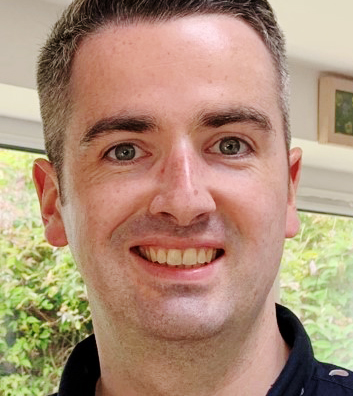George Holmes on harnessing new technology
The introduction of new technology can be daunting. At Citizens Advice Scotland (CAS) we saw the benefits and embraced it early, integrating it into our work to enable us to help more people more efficiently.
I work for the Extra Help Unit (EHU), a statutory service that’s managed by CAS and supports people in particularly vulnerable situations with their energy complaints.
Since 2022, the EHU has been breaking records – but not the kind you want to celebrate. The number of people in crisis contacting our service remains at an unprecedented level. The EHU handled 35,000 cases last year alone with around 70% of these being urgent. We streamlined processes, increased staff numbers and brought in a new case management system. But we knew we still had to do more.
A couple of years ago, the EHU was accepted onto the Civtech 8 programme, a Scottish government initiative that brings public, private and third sectors together to create changes designed to make people’s lives better.
We were partnered with HelpFirst, specialists in creating solutions for organisations that capture case notes on a regular basis. We wanted to create something that would ensure we can provide the best possible outcomes for the people contacting us for advice.
By working closely with HelpFirst, we created a tool to help us prioritise cases and highlight those at most risk of harm. It notifies our caseworkers when there is an imminent safeguarding concern, meaning we can react instantly to prevent harm to those we are supporting.
The development took two years and was launched in October 2024. The tool has had a hugely positive impact on our staff’s mental wellbeing. Urgent issues are flagged quickly, giving our teams the peace of mind that everything is being captured at the earliest opportunity. It acts as a safety net that helps our staff support more people.
The system also helps our teams manage their caseloads, dealing with the most urgent issues first and allowing managers to allocate work more effectively. Our advisers can now close their laptops at the end of the day knowing that no one will be left at risk. Early indications also show that our team feel more protected from safeguarding risks.
Having this type of technology in place not only makes our working days more efficient, but it can literally save lives.
The technology really is groundbreaking. It has helped our staff feel better and work more efficiently. And while the AI tool is a huge support, it’s an enhancement to the personal service, not a replacement of it. Our caseworkers continue to make the final decision and spend time tailoring the support to each person seeking advice.
So far, this tool has made a real difference and is a positive change. I would encourage other charities to explore the benefits of AI to them, but you do need to invest time and money in it early to shape how it works and make sure its impact is as effective as possible.
From the initial whispers of what AI could mean for CAS a few years ago to actually implementing this new tool, the experience has been incredible. It’s shown us that we can keep evolving as a charity and lean into new changes that will help us help more people – which of course is our ultimate goal.
George Holmes is Operations Manager for the Extra Help Unit at Citizens Advice Scotland.
This column was first published in the Herald www.theherald.co.uk







